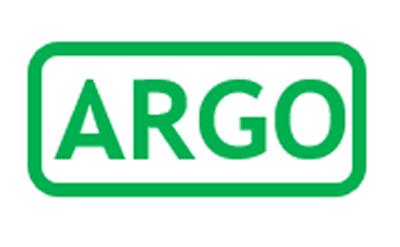SCTU trials presented at several international conferences

June is a busy month for academic conferences, and several trials run and supported by the Southampton Clinical Trials Unit have had results presented at recent virtual meetings.
Preliminary results for international oesophageal cancer trial
The first of these was the American Society of Clinical Oncology (ASCO) conference from 4th-8th June, where the preliminary results of the Neo-AEGIS trial were presented.
This was a trial for patients with cancer of the oesophagus (food pipe) and the junction of the oesophagus and stomach. Currently, the best combination of treatments for this cancer is unknown, and the Neo-AEGIS study looked at whether giving patients a combination chemotherapy before and after surgery worked just as well as chemoradiation before surgery only.
The trial was led by Cancer Trials Ireland with Neo-AEGIS Chief Investigator John Reynolds. Southampton Clinical Trials coordinated the opening of the trial in the UK giving UK patients access to the trial with UK Chief Investigator Shaun Preston.
A total of 377 patients were recruited into the trial from January 2013 to January 2021 across five countries (199 from the UK).
The preliminary results presented at ASCO showed that patients given the combination chemotherapy regimens had similar outcomes to those on the chemoradiation.
Gareth Griffiths, Director of the Southampton Clinical Trials Unit, said:
“We were delighted to be involved in running the international Neo-Aegis trial here in the UK. This was the first randomised controlled clinical trial to compare these treatment regimens for patients with advanced cancer the junction of the oesophagus and stomach. The data shows that patients on both treatment regimens have similar outcomes and supports clinician and patient decision making as to which to use in individual cases.”
To find out more about Neo-AEGIS visit the trial webpage, and to see the abstract visit the ASCO website.

Transforming treatment for patients with lymphoma of the brain or spinal cord
The IELSG-32 trial has had a significant impact on the treatment of people with primary lymphoma of the brain or spinal cord, leading to a change in the standard of care given to patients.
The seven-year follow-up results from this trial were presented at the European Haematology Association (EHA) Virtual Congress from the 9th-17th June.
IELSG-32 is an international trial led by the International Extranodal Lymphoma Study Group (IELSG) and Chief Investigator Professor Andres Ferreri in Italy. In the UK, the trial has been coordinated by the Southampton Clinical Trials Unit and led by Dr Kate Cwynarski at UCLH, with funding from Cancer Research UK.
Previously, the standard treatment for people with recently diagnosed primary central nervous system lymphoma (PCNSL) was chemotherapy which was often followed by radiotherapy treatment to the whole brain.
Results from the first randomisation of the study were published in 2016 and showed that adding two other drugs, another chemotherapy called thiotepa and an immunotherapy called rituximab, to standard chemotherapy in a regimen called MATRix, led to a better outcome in eligible patients who were under 70 years old.
The second part of the trial looked at whether whole brain radiation (WBRT) given after chemotherapy could be replaced by a stem cell transplant. While the results found that both treatments had similar efficacy, neuropsychological tests showed that patients treated with WBRT suffered from significant impairment in cognitive brain function following treatment, while transplanted patients had improvement in these functions and in quality of life.
The long-term follow-up results presented at EHA show that 70% of patients of patients receiving MATRix followed by a stem cell transplant are alive at seven years.
“This treatment regimen has transformed the outcome for patients and become standard of care in the UK and much of Europe,” says UK-lead investigator Kate Cwynarski.
“The first ever randomised study in CNS lymphoma was published in 2009. When I started working in this field, patients were either dying early as a result of their disease, or they had life altering cognitive impairment as a result of their treatment which effected how they functioned, their ability to work and their overall quality of life. Understandably this also had a huge impact on their carers and families.
“In just over a decade, research in this rare disease, often with international collaboration, has had a huge impact on the outcome for these patients, with a cohort of people who are potentially cured by these new treatments.”
However, there are still around a third of patients who do not respond to the MATRIX treatment regimen. A new study, coordinated by the Southampton Clinical Trials Unit, and supported by CRUK to look at further tolerability and efficacy of treatments is due to begin this year. This is being conducted with our German and other European colleagues and will be led by Dr Chris Fox in the UK. Many UK CNSL treating centres are keen to be involved so we hope all patients in the UK will have access to participate.
To find out more about IELSG-32 visit the trial webpage, and to see the abstract visit the EHA website.

Improving treatment options for lymphoma patients
Three trials were also being presented at the virtual ICML in Lugano Italy between 18th-22nd June. This is the flagship conference for lymphoma research and is held every two years.
Following the presentation at EHA earlier in the month, the seven-year results from the IELSG-32 trial were once again presented by Chief Investigator Andreas Ferrari.
Also on the bill was IELSG-37, another international lymphoma trial from the IELSG consortium, this time co-chaired and led in the UK by the University of Southampton’s Professor Andy Davies.
This trial is looking at patients with newly diagnosed Primary Mediastinal B Cell Lymphoma (PMBCL), a disease that frequently effects young women, typically in their 20s. The aim of the study is to see whether patients who have a good response to immunochemotherapy can be spared radiotherapy treatment. It’s hoped this could avoid some of the long-term side effects patients experience from radiotherapy, but researchers want to ensure this can be done safely and without reducing treatment success rates. Patients on the IELSG-37 trial are given chemotherapy combined with the immunotherapy rituximab, and a PET scan before and after treatment confirms whether their cancer is responding. If it is, they are randomised to radiotherapy treatment or observation only.
This is the largest study of its kind for this patient groups, with 545 patients recruited internationally. As most patients are still in long term follow-up, the primary endpoint of the trial (progression free survival at 30 months and overall survival at 5 years) are yet to be reported. However, the research team also looked at a secondary question to see what the best chemotherapy treatment is to get these patients into remission. Physicians could choose which chemotherapy to give their patient in combination with the rituximab. The results presented at ICML show that the conventional therapy most often used in lymphoma patients, a combination called R-CHOP, while effective when given every two weeks was found to be less effective than some other combinations when given every three weeks for this patient group.
Professor Andy Davies, co-chair and UK-Lead for the trial, said: “The initial results from this trial show that while conventional R-CHOP therapy can be effective for patients with PMBCL, other chemotherapy options may have better results when combined with rituximab immunotherapy.
“We are now waiting for the longer follow-up results to see whether those patients who respond well to chemotherapy need to go on to have radiotherapy treatment as well. The hope is that patients can be spared another invasive treatment and its associated side-effects, and that this large study will help to define the standard of care for patients with primary mediastinal B cell lymphoma.”
To find out more about IELSG-37 visit the trial webpage.

Meanwhile, the ARGO trial, also led by Professor Andy Davies, was part of the poster presentation at ICML. This trial looked at whether adding an immunotherapy called atezolizumab to conventional chemotherapy can improve outcomes for patients with diffuse large B cell lymphoma (DLBCL) where the disease has come back or is not responding to treatment.
The trial closed early when initial results showed that, unlike in many other cancers and lymphoma patients, the addition of immunotherapy did not improve outcomes in this particular group, who are generally older, less fit and often with comorbidities. The treatment was not found to be any more toxic than chemotherapy alone though.
However, the results also suggested that a sub-group of these patients with certain genetic biomarkers could possibly benefit from this treatment regimen. As the number of patients in this sub-group was very small, no firm conclusions could be made from this trial, but the results could lead to potential further investigations in the future.
To find out more about ARGO visit the trial webpage.